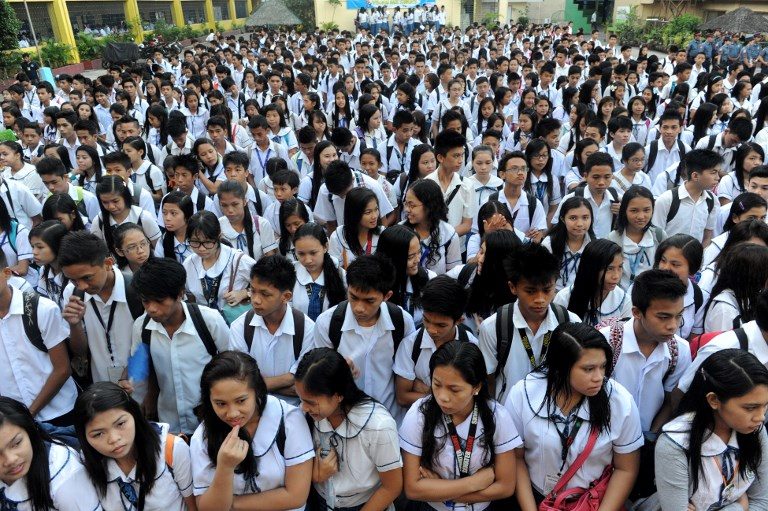SUMMARY
This is AI generated summarization, which may have errors. For context, always refer to the full article.

MANILA, Philippines – The transmission of the novel coronavirus may increase should face-to-face classes open in Metro Manila schools in August and September, experts at the University of the Philippines (UP) said in their latest report on the health crisis.
The UP COVID-19 Pandemic Response Team, in their latest report released on Thursday, May 7, estimated the effects of school opening in the National Capital Region after the lifting of the lockdown.
As of Thursday, Metro Manila recorded 5,614 coronavirus cases or over half of the country’s 10,343 confirmed cases.
The experts made their analysis and recommendations based on the assumption that colleges and universities would open on August 15, and elementary and high schools will open on September 1.
The analysis is also based on the country’s current testing detection rate and a scenario where 10,000 tests are done per day.
UP professor Peter Julian Cayton, one of the authors of the study, said that typically a person with COVID-19 – with or without symptoms – may transmit the disease to two other people on the average.
Explaining how it works in real life scenario, Cayton said that, in a classroom of 50 students, if a student is sick, expect two additional students would be sick 10 to 14 days later. The authors referred to this reproduction number of the coronavirus as R=2.
The study said the “ultimate goal” of the government is to bring the reproduction number “to less than 1 or close to 0 until a vaccine is discovered.”
However, the report noted that physically opening all schools in Metro Manila “may increase the transmission of COVID-19 to R values greater than 1.”
This is because, according to the study, those aged 0-20 have the most interactions with all age groups (56%), and with the elderly (49%).
“The conclusion is that the young aged 0-20 who have the most interactions with all age groups, and especially with the old, have a high likelihood of bringing home the infection from school and from their other social contacts, being mostly asymptomatic or only showing mild symptoms, to the more vulnerable members of their households,” the experts said.
Meanwhile, continued suspension of face-to-face classes until the end of the year may continue to lower the transmission of the virus to “near but not necessarily equal to zero values” by the end of 2020.
The UP COVID-19 Pandemic Response Team in April recommended to President Rodrigo Duterte the suspension of classes until December 2020 to contain the spread of COVID-19.
The UP experts said the results of their study support the plan of the government to carefully study the reopening of schools. (READ: Education workers’ group offers guidelines on safe reopening of classes)
“Now, more than ever, we need to adapt to a new normal of delivering learning with limited physical interaction. The right to education should not stop simply because schools are closed,” they said.
Opposition to opening of classes
When the Department of Education (DepEd) announced its decision to open classes on August 24, some stakeholders supported the move, but many others opposed it, saying the country’s education system is not fully prepared to manage classes during the coronavirus pandemic. (WATCH: Rappler Talk: Education in the time of coronavirus)
Many pointed out that the country is not yet ready for the alternative learning system that DepEd is pushing for, citing lack of stable internet connection in the provinces and the need for a reliable telecommunication infrastructure. (READ: During pandemic, student climbs a mountain to send class requirement)
A group of private schools sounded the alarm on the continued suspension of classes, saying that over 400,000 teaching personnel are currently affected by the lockdown.
“They are either receiving reduced pay now or they are no longer being paid at all due to the ‘no work no pay’ scheme,” Coordinating Council of Private Educational Associations managing director Joseph Noel Estrada told Rappler on April 27.
According to Education Secretary Leonor Briones, private schools that want to open classes in June may do so if allowed by the government task force, and should follow health safety protocols.
The Commission on Higher Education, meanwhile, said that universities and colleges implementing “flexible” learning may start school year 2020-2021 in August. – Rappler.com
Add a comment
How does this make you feel?
There are no comments yet. Add your comment to start the conversation.